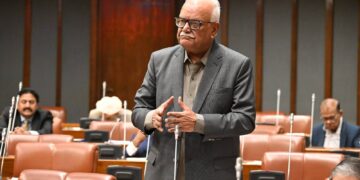Islamabad: Recent discussions about judicial reforms in Pakistan are raising concerns about potential changes to how judges are appointed. The 18th Amendment, a major achievement of the Awami National Party (ANP), established Article 175(A) to ensure the independence of the judiciary. This article created a Judicial Commission, led by the Chief Justice of Pakistan and including senior judges, the Attorney General, the Federal Law Minister, a retired Supreme Court judge, and a senior lawyer, to handle judicial appointments.
However, new proposed amendments are causing worry. The draft amendment, which has not yet been made public, suggests removing the seniority principle and giving the Prime Minister the power to choose from a list of five senior judges. This change would give the Executive branch significant influence over judicial appointments, which goes against the separation of powers intended by Article 175(A).
Another troubling proposal is to make High Court judges transferable between provinces. This could make judges, especially those in the Islamabad High Court, vulnerable to pressure and influence.
Many believe these changes aim to weaken the safeguards put in place by the 18th Amendment, which were designed to protect judicial independence and prevent military interference in the judiciary. The timing and nature of these proposals are seen as attempts to undermine these important reforms.


















